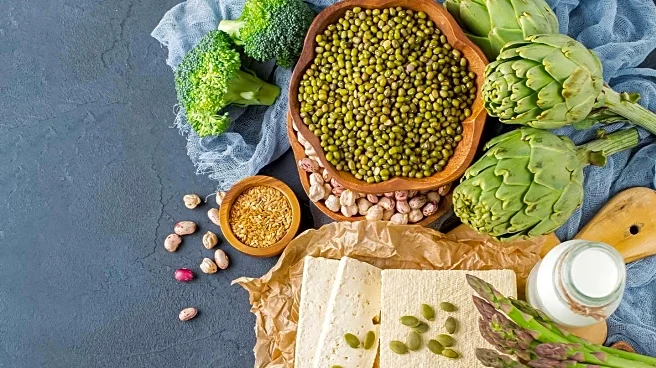What's Happening?
A comprehensive guide on managing nonalcoholic fatty liver disease (NAFLD) through diet has been published, emphasizing foods that promote liver health. Key recommendations include consuming coffee, leafy greens, beans, fatty fish, whole grains, nuts, turmeric, sunflower seeds, unsaturated fats, and garlic. These foods are noted for their ability to reduce liver inflammation, improve metabolic health, and support weight management. The guide also advises avoiding alcohol, added sugars, fried foods, excess sodium, refined grains, and processed meats, which can exacerbate liver damage.
Why It's Important?
NAFLD is a growing concern in the U.S., linked to obesity, type 2 diabetes, and high cholesterol. Dietary management is crucial for preventing disease progression and supporting liver function. The emphasis on a Mediterranean-style diet reflects a shift towards holistic health approaches that prioritize natural, nutrient-rich foods. This guide could influence public health strategies and dietary recommendations, encouraging individuals to adopt healthier eating habits to combat liver-related diseases.
What's Next?
Further research may explore the specific mechanisms by which these foods benefit liver health, potentially leading to new dietary guidelines. Healthcare providers might increase efforts to educate patients on the importance of diet in managing NAFLD. Public health campaigns could focus on promoting liver-friendly foods and lifestyle changes.
Beyond the Headlines
The focus on diet for liver health highlights broader issues of food accessibility and education. Ensuring that individuals have access to healthy food options and understand their benefits is essential for effective disease prevention. This may require policy changes to address food deserts and improve nutritional education.











